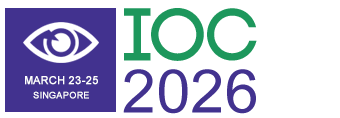Nanotechnology in Ophthalmology
Nanotechnology is a new concept that will soon become the pinnacle of science and technology. It penetrates using nanometer-sized molecules and has demonstrated its worth in space, medicine, and other fields of science. Because the eye is a small organ that can be easily accessed due to its exposed location, it is an ideal target for nanotechnology. It appears that the "discovery of nanomedicines has reawakened huge aspirations for ophthalmic pharmacotherapy, in which nanostructured drugs are predicted to pass through the eye's limiting barriers." Safe manufacturing procedures and unforeseen biological repercussions of nanomaterial use remain barriers to nanotechnology adoption. These challenges are not insurmountable, and this developing sector is likely to yield innovative treatments for ocular disorders.
- Nanomedicine
- Nano Pharmaceuticals
- Nanostructured Drugs

Tim Jackson
King’s College London, United Kingdom
Shadrokh Nabili
University Hospitals of Morecambe Bay NHS Foundation Trust, United Kingdom
Anna Maria Bassi
University of Genoa, Italy
Pio Conti
University of Chieti, Italy
Gowhar Ahmad
Florence Hospital Srinagar, India
Hyungju Park
Gangnam Tokyo Eye Clinic, Korea, Republic of




Title : Rare and interesting case of Goldenhar’s syndrome in a 3 years old male child
Gowhar Ahmad, Florence Hospital Srinagar, India
Title : Management of common vitreoretinal lesions: An overview and update
Tim Jackson, King’s College London, United Kingdom
Title : Targeting immunological pathways in Behcets uveitis
Hashim Butt, Bolton Royal Hospital, United Kingdom
Title : Optimizing astigmatism management in refractive cataract surgery
Shadrokh Nabili, University Hospitals of Morecambe Bay NHS Foundation Trust, United Kingdom
Title : Blood sugar measurement in acute anterior uveitis a life saving link
Shie Wei Chan, Manchester Royal Eye Hospital, United Kingdom
Title : Comparative outcomes of a newly modified trabeculectomy versus conventional trabeculectomy
Hyungju Park, Gangnam Tokyo Eye Clinic, Korea, Republic of